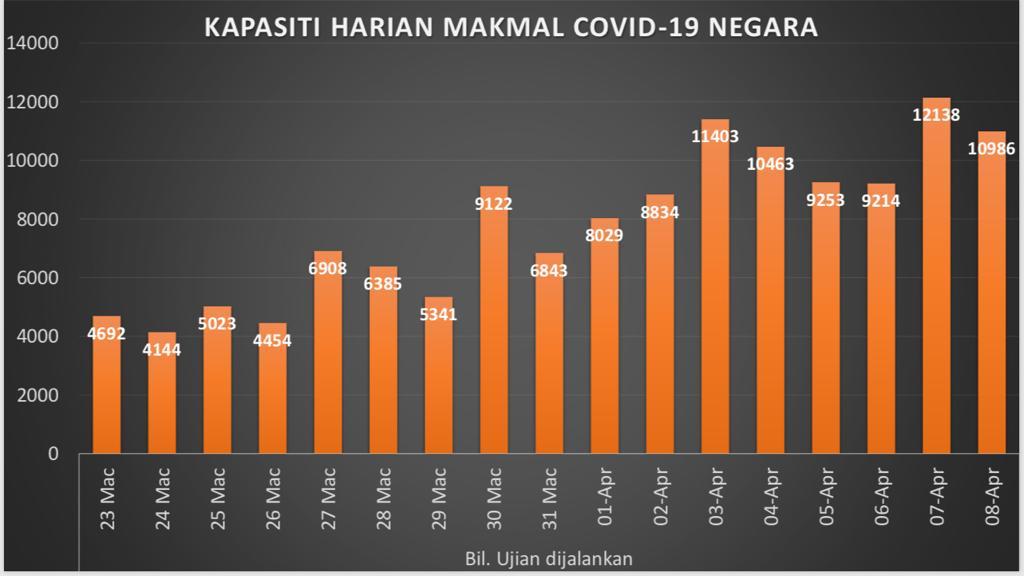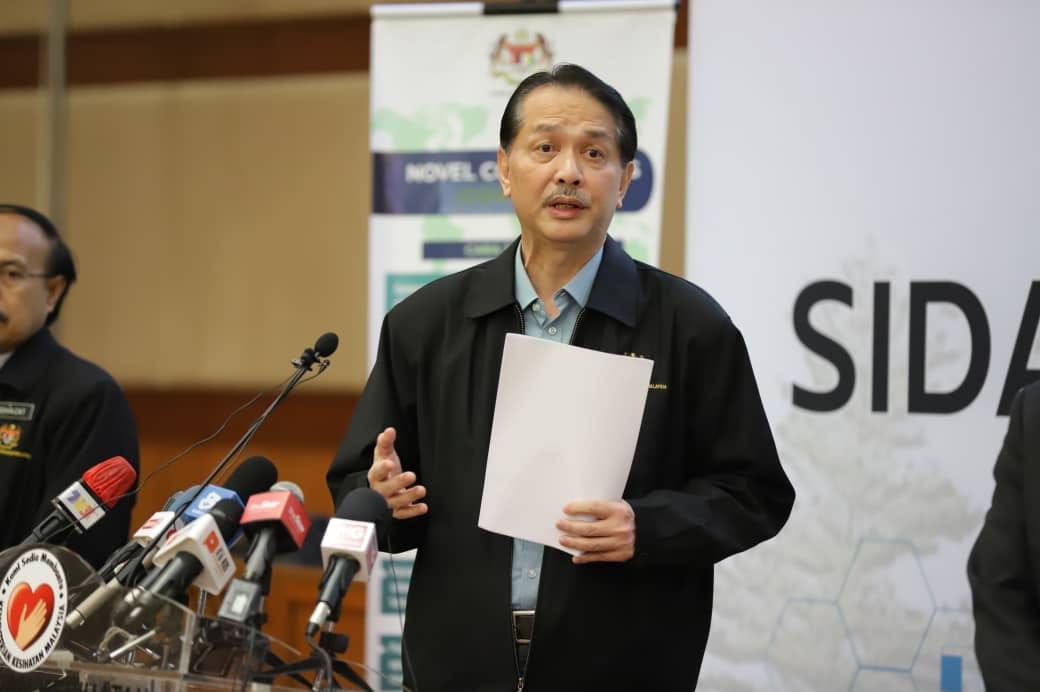KUALA LUMPUR, April 9 — The Ministry of Health (MOH) explained today that it stopped publishing pending Covid-19 test results as there would be pending cases every day.
Health director-general Dr Noor Hisham Abdullah said some test results take more than 24 hours, but new infections are reported at noon every day.
“So we thought it’s a bit confusing for us to use pending cases. Every day we have pending cases, because every day we’re testing people.
“So what we’re doing now, perhaps we’ll give you the numbers of cases that we manage everyday,” Dr Noor Hisham told a press conference.
According to him, 69,675 people have been tested for coronavirus as of today, but he did not explain if these individuals were new patients tested for diagnosis or if the figure included repeated tests for current patients.
“Every day we’re increasing capacity from 4,600 [daily] to now about 10,000 cases. So we’re trying our best to increase our full capacity, probably 11,500. Once we reach that, we need to expand further.”
He said MOH has yet to find a reliable and accurate antigen rapid test kit with a short turnaround time that can test at the point of care.
MOH last shared its Covid-19 testing data with the public on April 5, where out of 51,937 people tested as of that date, 8,398 test results were pending.
Today, MOH released a graphic on the number of tests done in Covid-19 labs, rising from 4,692 tests on March 23 to 10,986 tests yesterday. But it is unknown if these are new tests for diagnosis or if the figures include repeated tests.

Covid-19 Modelling
Dr Noor Hisham said MOH, the Malaysian Institute of Economic Research (MIER), as well as a few statisticians and epidemiologists would meet later today to draw up models of the Covid-19 epidemic and predict the trajectory of the disease in the next week or so.
“By looking into it, we can at least come up with a prediction whether we’ll have a surge or exponential surge of cases or not. Looking at our performance so far, today is one of the lowest, 109 cases,” he said.
He added that Malaysia has a small window of opportunity, where health facilities and resources must be maximised within the next two weeks to avert an exponential surge, pointing out that the World Health Organization (WHO) and other agencies have predicted a surge in cases in one week.
When asked about standard operating procedures (SOP) after the MCO, which is expected to end next Tuesday, Dr Noor Hisham said MOH was now zooming in on coronavirus hotspots at the village and sub-district levels.
“We’re also working closely with police and MCMC (Malaysian Communications and Multimedia Commission) looking into how we can use technology to identify the people. For example, if you have an index case, then we’ll try to identify the family members.”
Dr Noor Hisham said Malaysia currently has 70 coronavirus-screening hospitals and 40 hospitals that can treat Covid-19 patients. Seven hospitals treat coronavirus exclusively.
“In three to four days, we could build one hospital. At MAEPS, the hospital will be used for Covid-19 patients in the near future. It’s a temporary hospital with 600 beds. It’s a record success,” he said, referring to the Malaysia Agro Exposition Park Serdang (MAEPS) hall.
He explained that MOH has cancelled all elective surgeries in Covid-19 hospitals, which are decanted to district hospitals. Elective surgeries are operations that can be scheduled ahead of time.
“Our team — lock stock barrel, surgical department, orthopaedic department — all moved to our district hospitals and they continue to see cases and perform surgery in district hospitals. We refer some of our cases to university hospitals, for example, semi-urgency cases, and even elective cases we refer to them.”
The Health DG said MOH has also negotiated pricing with private hospitals, including Institut Jantung Negara (IJN), to take over non-coronavirus public patients.








